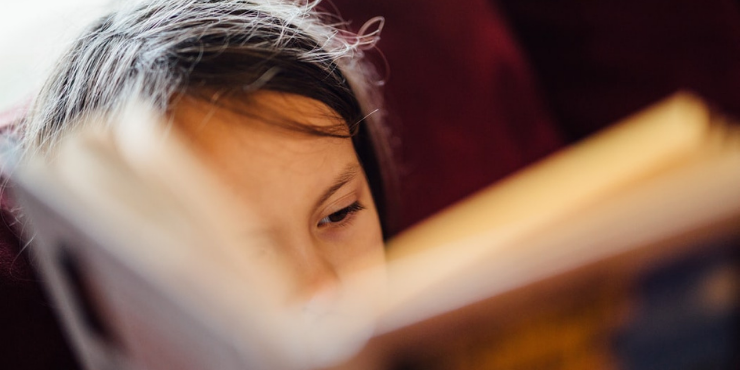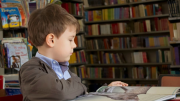ALİCAN ACANERLER
At the page 44 of Good Night Stories For Rebel Girls, over the question “When are you going to make me a girl? The Conservation Board’s concerns were tried to be quelled through the story of Coy Mathis on page 44 of Good Night Stories For Rebel Girls where the question “When are you going to make me a girl?” appears, by making references to psychosocial development theories. Stating that the lawsuit process, along with the other two books, also reveals the relationship between competence and the expression of “social gender”, Attorney Ümit Erdem, whom we talked about in the first part of the article series, said, “The story about Coy Mathis in the book is not just a story, it is a courtroom victory in America. The Protection Committe perceived this as ‘encouraging transsexuality’ and found it inconvenient. In the Ministry’s objections to the expert reports during the trial, it is said that this book pushes children to ‘complain about their gender identity’. He uses the expression that not only is there not such a crime, but this statement itself made by the Ministry is so dangerous that it can be filed, thus explaines the main point of banning the book.”
Non-governmental organizations in Turkey have repeatedly stated that the pressure against LGBTI+ individuals has increased in the last 10 years. During the “Dimensions of Polarization in Turkey” research conducted by Turkuaz Lab in 2020, people were asked “Would you like to have a gay neighbor?” the “No” answer of 54 percent to the question constitutes a scientific data on the country’s view of the subject.
“WE DON’T BE LGBTI BY SEEING LGBTI PEOPLE!”
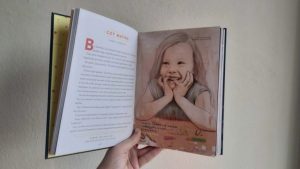
In the book the story of Coy Mathis tells a legal battle. (Photograph on the left: Alican Acanerler)
Psychologist Ebru Ergün, working in the field of child psychology, who states that she does not find it right to censor a children’s book on the grounds that “it encourages being LGBTI+” in such a polarized environment, underlines that “you will not become LGBTI+ by seeing LGBTI+ people or reading stories about them” and adds: “Children are more easily able to distinguish what is what, since they are less exposed to conservative social values than adults as a result of the advantage of their age. Therefore, explaining the existence and rights of LGBTI+s in children’s books and that it is perfectly normal and possible to live together does nothing but facilitate children’s use of these skills and increases the possibility of a more inclusive and peaceful society.”
12-year-old Canan said, “One of the stories that impressed me the most was the woman who was actually trans. “It was informative to read about the difficulties she went through, just like the story of the woman who escaped during the Syrian Civil War and later became a swimmer.” she says. We can understand that the objection of the Ministry does not find a place in the mental world of children, as psychologist Ergün stated. Ebru Ergün made her statement: “It is always easier to talk about these issues with children; they quickly realize that gender is largely fictional. As adults, we will not be able to get rid of the delusion that it is very difficult and even harmful to talk about LGBTI+ individuals unless we stop thinking about our prejudices and eliminating our ignorance on this issue.”
YKY ALSO STOPPED SALES WITH WHITE ENVELOPE BY COURT DECISION
The adjudication is awaited after the hearing of the suit on March 8, 2021, which was filed by Attorney Ümit Erdem, which was also discussed in our article. In addition to the lawsuit in question, a lawsuit was filed against Burcu Uğuz, the translator who translated the Books of the Declaration of Rights of the Girls and the Declaration of the Rights of the Boys into Turkish, on the grounds that the book was censored last year.
As the Declaration of the Rights of Girls and Boys books are no longer available in any bookstore, it is not possible to purchase the books calling YKY, the publisher of the books and place an order. The publishing house official stated that when the decision was made about the book in September 2019, they collected all the books from their dealers and gave them inside white envelopes to those who wanted them, but in the next process, they gave up this type of sales method in line with a court decision sent to the publishing house while the case was still ongoing. The lawyer of YKY Publishing refused to answer our question about the action they took after the court decisions regarding children’s books. The Declaration of Rights for Girls and Boys cannot be purchased legally right now.
HOW SHOULD ‘OBSCENITY’ BE INCLUDED IN CHILDREN’S BOOKS?
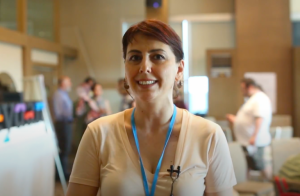
Psychologist Ebru Ergün concludes her statements by saying, “However, it is all about preserving the society we have established for our own interests and ‘preserving our POWER’.” (Photograph: Tarlabaşı Community Center video archive)
According to the report titled “Censorship and Self-Censorship in Turkey in 2020” by the Speak Up Platform, nine more books were censored in line with the same decision during the period that passed after the obscene publication decisions taken about the three books mentioned in the article. According to the report, a total of 13 books were censored for reasons such as “general morality, obscenity, impact on child development” throughout Turkey. Among these decisions, those who are accused of “obscenity” draw attention. Rights of Girls and Boys books were declared as obscene for this reason.
Hatice Kapusuz, on the other hand, underlines that the books that actually are found obscene are always about the sexual development of children. He says that they direct the gaps in their minds regarding sexual development to adults by asking questions such as “Where do babies come from?”. According to Kapusuz, it is the adults who find these questions obscene.
We can understand from the concerns reflected on social media that parents are also confused in this situation. According to Kapusuz, who emphasizes that the important thing here is that the child needs according to his age; For a three-year-old’s question “Where did I come from?” while a simple explanation such as “you were in your mother’s womb, then you were born” might be sufficient, for a 10-year-old child, the role of mother and father needs to be explained:
“When we constrain the natural reflection of the child’s development and recognition of the child’s body from speaking or asking as it is obscene, we pose the risk of not noticing the health problems in the genitals and disrupting the relationship the child has established with their/her/his body. Worst of all, this constraining creates even a risk of overreacting, embarrassment, silencing, and sexual abuse. It destroys the ground for the child to share their/her/his difficulties in this regard.”
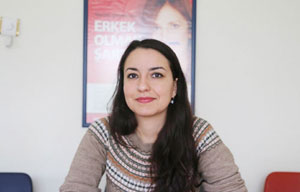
Hatice Kapusuz
Another issue that inflames the question marks in the minds of parents is the claim of some experts that simplified versions of each work should be presented to children under the slogan “child reads everything”. By now from time to time, we have witnessed that many works that may be traumatic even for adults in terms of their themes were shortened and simplified in their language and recommended to children, with the initiatives of the MoNE.
While a child psychologist, to whom we have directed the accuracy of this claim, supports the initiatives of the MoNE, Kapusuz summarizes the situation in terms of parents as follows:
“OUR ATTITUDE REGARDING THE RELATIONSHIP WITH THE CHILD AND BOOK SHOULD BE TO GUIDE AND PROVIDE OPTIONS”
“Our attitude regarding the relationship between the child and the book should be to guide and offer options. For this reason, it is important to accompany children while choosing books and to visit bookstores together. In order to support subjectivity, we must open up space for children to make choices. The problem is reading only one genre and imposing one genre on the child.
We should not blink the fact that children need adventure, conflict, imagination and creativity and that books are good tools for this. While reading the books, children identify themselves with the protogonist. They accompany that protogonist. For this reason, it is important to provide diversity here. Meeting different protoginists and increasing this acquaintance expands all of our world.
Apart from these, there are themes that will meet the needs. For example, there are books on topics such as fear and anxiety that can help you overcome a challenge. If a book on anxiety gives the message, “There is nothing to worry about, be brave”, it will harm the child. Our goal should be to support the child’s ability to recognize and accept their emotions and develop a method to deal with it.”
“GOOD PUBLISHING ETHICS ALSO PROTECTS US FROM CENSORSHIP”
Safter Korkmaz, on the other hand, approaches the issue from a different angle. According to Korkmaz, if the evalutaions regarding the content of the books declared obscene by considering as erotic or obscene will be done in any case, it should be done by publishers and publishing workers. He mentions that both by determining the professional principles and encouraging of good publishing practices through the professional/ethical committees to be established, a good publishing understanding that will come from the back of house before the parents can be a guide for everyone. “There should be no control and censorship of any power outside the field (other professional disciplines such as political, legal or psychology, pedagogy). All aside; while TV series legitimizing illegal activities such as murder, violence against women and arms trade are broadcast on television every night; why is Nöstlinger or Janish are banned in this country, while you can find Hitler’s My Struggle or similar discriminatory books on bookstore shelves? Why is it a crime to say ‘you can love whoever you want’, so a translator is prosecuted? Why is the border drawn from outside the literature, by cutting the literature? It is impossible to understand…” Korkmaz adds.
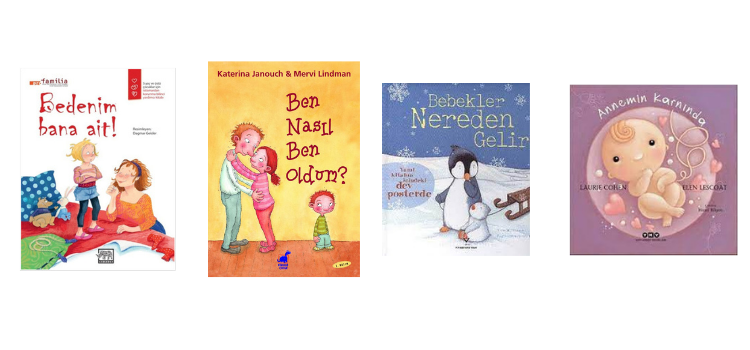
Saying, “A healthy sexual education also protects children against sexual abuse,” Kapusuz also offers some work suggestions for parents. (From left to right: My Body Belongs to Me (+5) – Gergedan Publishing House, How I Became Me (+9) – Dinazor Child, Where Do Babies Come From (+2) – TÜBİTAK, When I Was In My Mother’s Womb (+2) – YKY)
The Publishers Association, on the other hand, strives to raise the voices of publishers, booksellers, parents and authors interested in children’s books, with statements regarding books that are censored by hiding behind various reasons such as “obscenity,” “eroticism,” “sexuality”. However, the Ministry of Family continues to censor works that it considers that they do not comply with social moral norms under the guise of “obscenity”, a concept that is not even clearly defined in the Turkish Penal Code. When the ongoing legal processes are examined in detail, we can unfortunately see that there are also traces of LGBTI+ hatred that is getting deeper in the society.
SO WHAT IS THE SOLUTION?
When we ask Hatice Kapusuz what the solution might be, she answers: “Basically, the perception of children needs to change. We need to start by accepting the child as an individual. Children are individuals and they have potential for life. Our responsibility is to guide them to develop themselves and develop their potential rather than to prepare them for the future.
For these, only caregivers’ transformation is not enough. We need public or collective solutions. Because the nuclear family structure, where the caregiver and the child are left alone, is full of dilemmas. These dilemmas, on the other hand, turn children into a money box that is tried to be disciplined, suppressed violently or constantly improved.
That’s why some of the children’s books are a reflection of them: tasteless, saltless, oriented towards training and standardization. Of course, the perception of book authors, editors and publishing houses about children needs to change.
In addition to these, we need to create collective access areas for good books in neighborhood libraries such as the My Sweet Orange Tree Education and Culture Association in Ankara Batıkent.”

